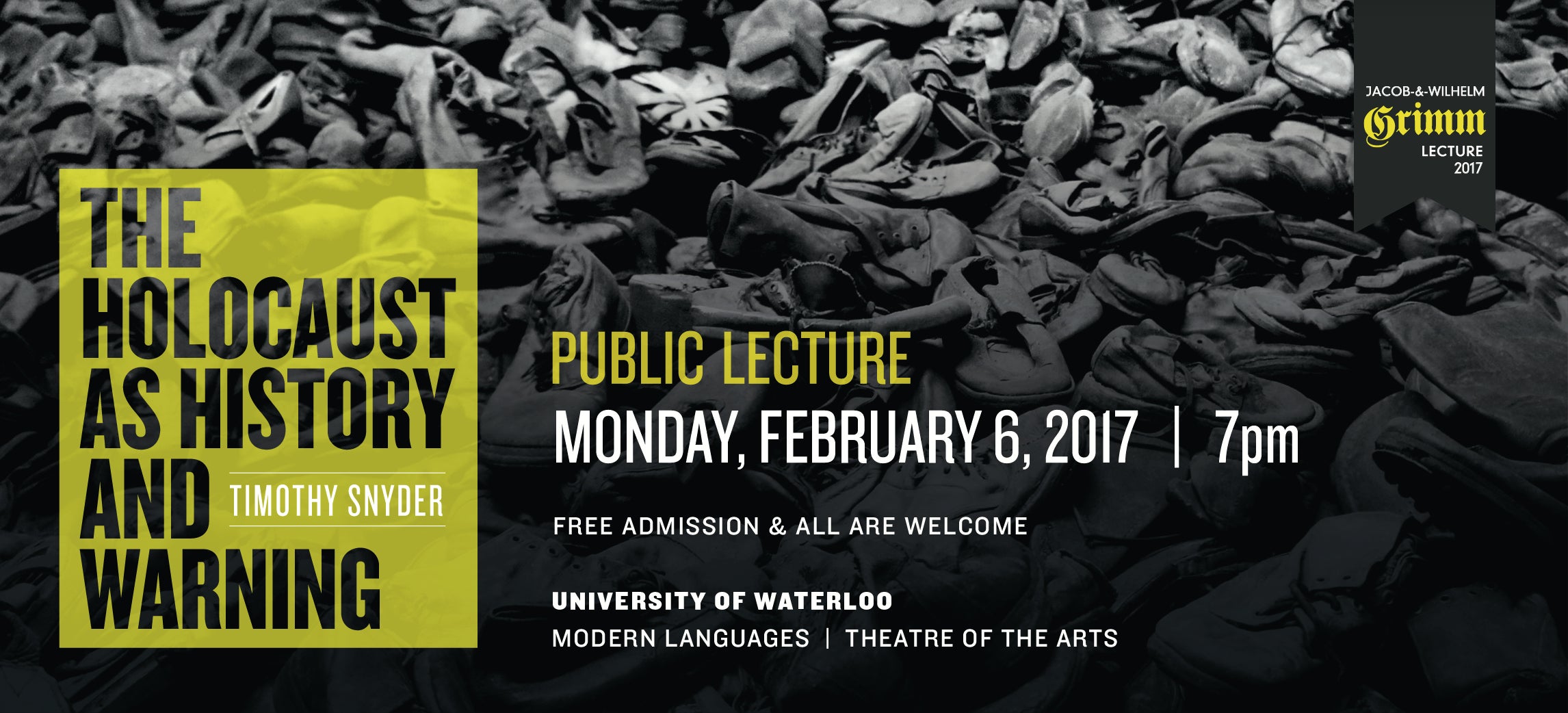The lessons of history present a critical opportunity to save us from ourselves, says Timothy Snyder, Housum Professor of History at Yale University.
Learning from the Holocaust specifically, and recent European history generally, offer the most pressing lessons for our time.

A leading American scholar specializing in Central and Eastern European history, Snyder will present the 2017 Jacob and Wilhelm Grimm Lecture at the University of Waterloo on Monday, February 6. The free event is part of the University of Waterloo’s 60th anniversary celebrations.
The lecture will be based on Synder’s 2015 book, Black Earth: The Holocaust as History and Warning, and will describe how the world today echoes sensibilities of the early 20th century more than we may realize.
Snyder says that we must face the discomfort of imagining what humans can do to humans, particularly in past circumstances that are not so different from our own.
If we fail to learn from the Holocaust, an unprecedented crime could become a precedent for the future.
His ideas are not confined to academe. Within a week of the U.S. election, Snyder posted Twenty Lessons from the Twentieth Century on his Facebook page, which he expands upon in On Tyranny.
But it is his scholarship that makes Snyder a distinguished public intellectual. He speaks and reads multiple European languages, which enabled him to research diverse and untapped source material and testimonials. Black Earth depicts the entirety of the Holocaust in accessible and rigorously relevant terms.
Timothy Snyder is a member of the Committee on Conscience of the U.S. Holocaust Memorial Museum. He is the author of five award-winning works of history, including Bloodlands: Europe Between Hitler and Stalin, which received the Literature Award of the American Academy of Arts and Letters.
The Grimm lecture is hosted and organized by the Waterloo Centre for German Studies and is co-sponsored by the Faculty of Arts, the Department of History, the Joseph and Wolf Lebovic Chair of Jewish Studies, and the Department of Germanic and Slavic Studies.
Story originally posted on Waterloo Stories.